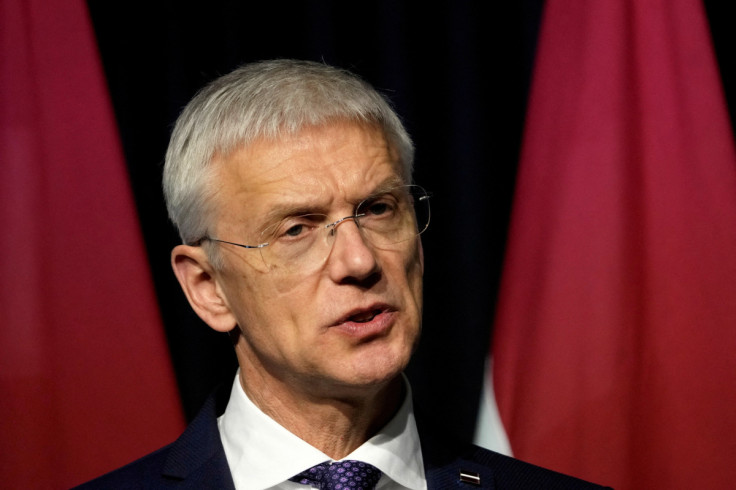Latvia Says Traders Use Turkey, Kazakhstan, Armenia To Dodge Russia Sanctions

Traders are using Turkey, Kazakhstan and Armenia to evade European Union sanctions on Russia in a tactic that breaches these countries' compliance with the bloc's embargo, Latvia's prime minister said on Friday.
Krisjanis Karins made the assertion following talks with counterparts from fellow EU members Estonia and Lithuania, which along with Latvia have been among most vocal supporters of sanctions on Russia following its 2022 invasion of Ukraine.
"It seems quite clear that traders are finding ways to legally trade goods, say with Turkey, Kazakhstan or Armenia which are then resent to Russia, because these countries are not adhering to the sanctions regime", Karins told reporters in the Estonian capital Tallinn.
Karins pointed to a rise in European trade with the three countries which he said was "disproportionate to where it has been in the past".
He did not provide further evidence of sanctions evasion and did not specify the types of goods allegedly traded.
There was no immediate response from the foreign ministries of Turkey and Kazakhstan to requests for comment on the remarks by Karins. There was no immediate reply from Armenia's economy ministry to a request for comment.
"One (solution) is to work with these countries, to get them on board also following the sanctions. The second is to look for legislation across Europe, to make sure that we criminalize the sanction avoidance," Karins said. "Close the loopholes!"
Following the talks with Karins and Lithuanian counterpart Ingrida Simonyte, Estonian Prime Minister Kaja Kallas said a "total ban of trade" with Russia should be considered to help with sanctions avoidance.
Turkey has previously condemned Russia's invasion and sent armed drones to Ukraine. At the same time, it opposes Western sanctions on Russia and has close ties with both Moscow and Kyiv, its Black Sea neighbours.
It has also ramped up trade and tourism with Russia. Some Turkish firms have purchased or sought to buy Russian assets from Western partners pulling back due to the sanctions, while others maintain large assets in the country.
The U.S. Treasury Department's top sanctions official is on a trip to Turkey and the Middle East this week to warn countries and businesses that they could lose access to G7 markets if they do business with entities subject to U.S. curbs, as Washington cracks down on Russian attempts to evade sanctions imposed over its war in Ukraine.
© Copyright Thomson Reuters 2024. All rights reserved.





















